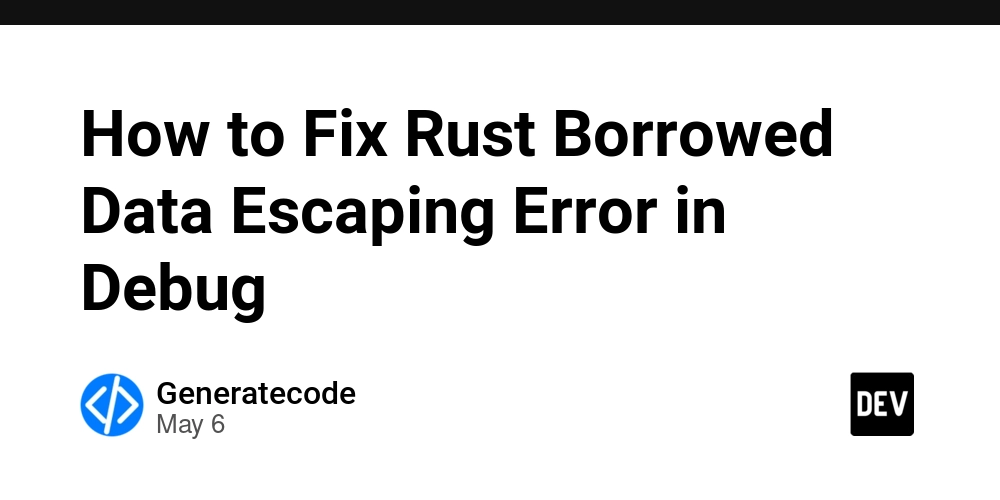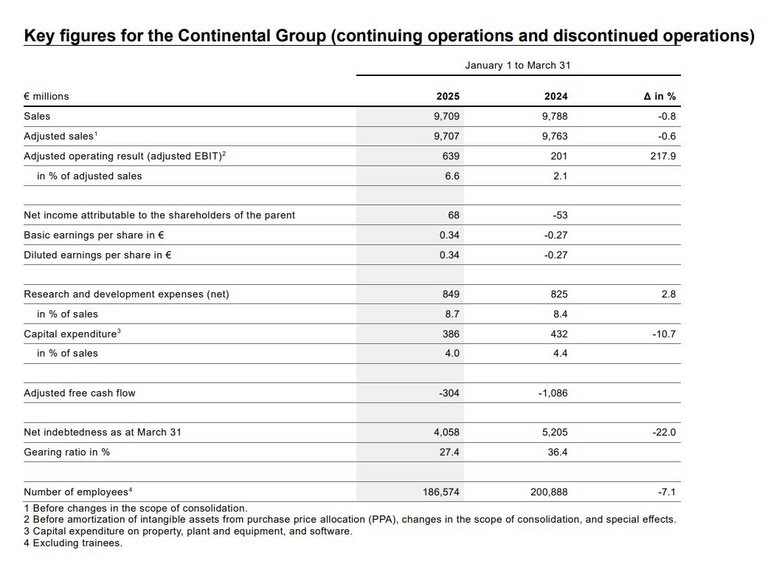How to Fix Rust Borrowed Data Escaping Error in Debug
Introduction In Rust programming, a common error developers encounter is the 'borrowed data escapes outside of method' error. This typically happens when a reference does not match the expected lifetime, causing issues during compilation. In this article, we'll explore the reasons behind this error and how you can fix it to successfully print data from your NodesHeap structure while implementing the Debug trait. Understanding the Borrowed Data Error When you implemented the fmt::Debug for your NodesHeap, you're trying to generate a debug representation of your data structure using an iterator. The specific error you received states that the borrowed data escapes outside of the method. This issue arises because in your implementation of the get_all function, the return type NodesHeapIterator, } Here, we specify that the heap field should borrow a NodesHeap with the same lifetime 'b. Updating the get_all Method Next, let’s modify the get_all method to ensure it returns an iterator that adheres to the proper lifetime requirements: impl { pub fn get_all NodesHeapIterator fmt::Debug for NodesHeap = self.get_all(); for node in iter { let _ = write!(f, ", {}", node); } Ok(()) } } This implementation now ensures that self is correctly borrowed and used without escaping its intended lifetime. The debug representation will now effectively extract all required details. Compiling and Testing the Code After making the above modifications, you should now be able to compile your Rust code without the data escaping error. To ensure everything behaves as expected, run your tests and verify the output of the debug statements. Frequently Asked Questions (FAQ) What does the error borrowed data escapes outside of method mean? This error occurs when a reference you return has a lifetime not matching the scope of its borrowing, violating Rust's safety guarantees. How can I resolve lifetime-related issues in Rust? You can resolve these issues by carefully defining lifetimes in your struct and function signatures, ensuring they align correctly to avoid escaping borrows. Is there a way to debug lifetime issues in Rust? Yes, utilizing tools such as the Rust compiler's error messages and the borrow checker can help debug these issues effectively. Rust’s error messages often provide insights into what specific lifetimes are mismatched. Conclusion In this article, we addressed the common Rust error related to borrowed data escaping outside the method. By modifying lifetime annotations and ensuring correct borrowing practices, you can implement the Debug trait for your NodesHeap structure seamlessly. This not only helps in printing data but also improves your overall understanding of Rust’s strict borrowing rules. Happy coding!

Introduction
In Rust programming, a common error developers encounter is the 'borrowed data escapes outside of method' error. This typically happens when a reference does not match the expected lifetime, causing issues during compilation. In this article, we'll explore the reasons behind this error and how you can fix it to successfully print data from your NodesHeap structure while implementing the Debug trait.
Understanding the Borrowed Data Error
When you implemented the fmt::Debug for your NodesHeap, you're trying to generate a debug representation of your data structure using an iterator. The specific error you received states that the borrowed data escapes outside of the method.
This issue arises because in your implementation of the get_all function, the return type NodesHeapIterator<'b, Updater> borrows self, but the lifetime of the borrow does not extend outside the get_all method. In essence, Rust's ownership model is preventing you from returning a reference to self that lives longer than the method, which is essential for compiler safety.
Step-by-Step Solution to the Error
To address the issue, we need to ensure that the lifetimes are correctly defined in your NodesHeapIterator and the get_all methods. Let's modify your code step by step to solve the problem and correctly implement the Debug trait.
Altering Lifetime Annotations
We can start by changing the lifetime annotations in the NodesHeapIterator and ensuring they reflect the structure's ownership. Here’s how to do that:
Correcting the NodesHeapIterator
struct NodesHeapIterator<'b, Updater: HomeStateUpdater + Clone + 'b> {
nodetype: node::NodeType,
index: usize,
filter: String,
heap: &'b NodesHeap<'b, Updater>,
}
Here, we specify that the heap field should borrow a NodesHeap with the same lifetime 'b.
Updating the get_all Method
Next, let’s modify the get_all method to ensure it returns an iterator that adheres to the proper lifetime requirements:
impl<'a, Updater: HomeStateUpdater + Clone> NodesHeap<'a, Updater> {
pub fn get_all<'b>(&'b self) -> NodesHeapIterator<'b, Updater> {
NodesHeapIterator {
nodetype: node::NodeType::PublicPowerGrid,
index: 0,
filter: "all".to_string(),
heap: self,
}
}
}
Notice how we have changed the signature of get_all to make it clear that it borrows self for the lifetime 'b. This ensures that the returned NodesHeapIterator remains valid.
Modifying the fmt Implementation
Once you've adjusted get_all, let’s ensure we correctly implement the fmt method as follows:
impl<'a, Updater: HomeStateUpdater + Clone> fmt::Debug for NodesHeap<'a, Updater> {
fn fmt(&self, f: &mut fmt::Formatter) -> fmt::Result {
let iter: NodesHeapIterator<'_, Updater> = self.get_all();
for node in iter {
let _ = write!(f, ", {}", node);
}
Ok(())
}
}
This implementation now ensures that self is correctly borrowed and used without escaping its intended lifetime. The debug representation will now effectively extract all required details.
Compiling and Testing the Code
After making the above modifications, you should now be able to compile your Rust code without the data escaping error. To ensure everything behaves as expected, run your tests and verify the output of the debug statements.
Frequently Asked Questions (FAQ)
What does the error borrowed data escapes outside of method mean?
This error occurs when a reference you return has a lifetime not matching the scope of its borrowing, violating Rust's safety guarantees.
How can I resolve lifetime-related issues in Rust?
You can resolve these issues by carefully defining lifetimes in your struct and function signatures, ensuring they align correctly to avoid escaping borrows.
Is there a way to debug lifetime issues in Rust?
Yes, utilizing tools such as the Rust compiler's error messages and the borrow checker can help debug these issues effectively. Rust’s error messages often provide insights into what specific lifetimes are mismatched.
Conclusion
In this article, we addressed the common Rust error related to borrowed data escaping outside the method. By modifying lifetime annotations and ensuring correct borrowing practices, you can implement the Debug trait for your NodesHeap structure seamlessly. This not only helps in printing data but also improves your overall understanding of Rust’s strict borrowing rules. Happy coding!













































































